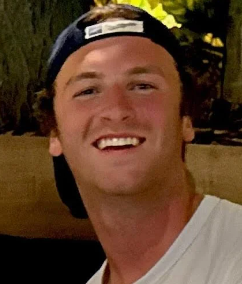

 July 17, 2014 WASHINGTON, DC—The United States Holocaust Memorial Museum has made available records from the United Nations War Crimes Commission that have been largely inaccessible for more than 70 years. The collection will contribute to scholars’ and the public’s understanding of the perpetrators of the Holocaust and other Nazi crimes and of the accountability...
July 17, 2014 WASHINGTON, DC—The United States Holocaust Memorial Museum has made available records from the United Nations War Crimes Commission that have been largely inaccessible for more than 70 years. The collection will contribute to scholars’ and the public’s understanding of the perpetrators of the Holocaust and other Nazi crimes and of the accountability... 
July 17, 2014
WASHINGTON, DC—The United States Holocaust Memorial Museum has made available records from the United Nations War Crimes Commission that have been largely inaccessible for more than 70 years. The collection will contribute to scholars’ and the public’s understanding of the perpetrators of the Holocaust and other Nazi crimes and of the accountability mechanisms used to bring them to justice in the aftermath of World War II.
The files contain information on Heinrich Himmler, chief of the Gestapo and the SS and the orchestrator of the “Final Solution”; Josef Mengele, the Auschwitz killing center doctor known for his macabre experiments on prisoners; Adolf Eichmann, one of the most pivotal actors in the deportation of European Jewry; Elimar Luder Precht, the head of the Auschwitz dental clinic; Miklós Horthy, the regent of Hungary from 1920 to 1944; Klaus Barbie, the Gestapo chief of Lyons, France; and many other lesser-known perpetrators.
The United Nations War Crimes Commission records from 1943 to 1949 comprise about 370,000 pages of documents related to alleged Nazi war criminals; the charges filed against them; and meeting minutes, reports, correspondence, trial transcripts, and other papers tied to the commission’s activities. Moreover, the archive holds records related to the prosecution of these alleged war criminals by tribunals from different countries. Learn more about what is contained in the records (PDF).
Rescuing the evidence of the Holocaust and ensuring it is preserved and made available is a major Museum strategic initiative. Museum officials strove to make access to the UN material unrestricted and to have it be of ready use to scholars and other researchers.
“Rescuing the evidence means not only finding material that you save from possible destruction, but also opening up material that is not accessible,” says Henry Mayer, the Museum’s senior advisor on archives. “In this case, rescuing the evidence also includes releasing information to the research community that really should be open but has not been.”
Previously, accessing this archive in the United States required a cumbersome process that involved the approval of both the US ambassador to the United Nations and the UN secretary-general. In addition, those who were granted access could view the material but could not take notes.
“We have many different war-crimes records from all over the world,” Mayer said, “but this was a major lacuna in our holdings. The reason we felt that it was time that it should be opened is that similar material all over the world has been opened, including in the United States.” For instance, the National Archives and Records Administration has some of the same lists of war criminals contained in the UN archive; those have been available to the public for the past 40 years.
The UN archive can be viewed at the Museum Library, which is open to the public Monday through Friday, 10 a.m. to 5 p.m. (closed on federal holidays and Yom Kippur). Those who wish to view the material should first contact the reference staff for information.
About the Museum
A living memorial to the Holocaust, the United States Holocaust Memorial Museum inspires citizens and leaders worldwide to confront hatred, prevent genocide, and promote human dignity. Its far-reaching educational programs and global impact are made possible by generous donors. For more information, visit ushmm.org.
Content from United States Holocaust Memorial Museum
Originally published at https://www.ushmm.org/information/press/press-releases/museum-makes-united-nations-war-crimes-archive-public
originally published at HUMAN RIGHTS - USA DAILY NEWS 24

